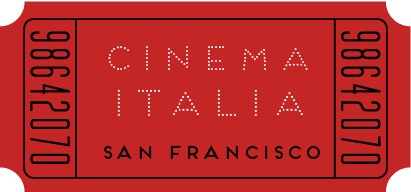






“Arguably in Mamma Roma the sub-proletarian world provides not only the subject matter but the actual subject of the film, for the story hinges on the attempts of Mamma Roma, an ex-prostitute, to ‘go straight’ and to provide a respectable petty bourgeois existence in which her adolescent son can grow up. The attempts fail and the respectable dream evaporates and, in a sense, there is a moral in this—the first statement by Pasolini of what is to become a recurrent theme: the un-livability of the modern bourgeois and petty-bourgeois world” (G. Nowell-Smith, “Pasolini’s Originality,” in Pier Paolo Pasolini, 1977). In Italian; English subtitles. 111 min.
Directed by Pier Paolo Pasolini. With Anna Magnani, Ettore Garofolo, Franco Citti.

“Unlike Euripides, who in his tragedy concentrates solely on the final outcome of Medea’s jealousy (the murder of her children), Pasolini devotes almost half of his film to an evocation of the primitive culture of Colchis in which Medea was brought up and from which she flees with the Golden Fleece under the influence of her love for Jason. (…) The tragedy arises not simply from an excess of passion or a conflict of character (Medea and the mediocre Jason) but also from a profoundly observed clash of civilizations” (Roy Armes, Film and Filming, June 1971). Restoration by S.N.C. Presentation of the film in its original 35 mm format is made possible by Gucci. In Italian; English subtitles. 110 min.
Directed by Pier Paolo Pasolini. With Maria Callas, Laurent Terzieff, Giuseppe Gentile, Massimo Girotti.

“Taking 10 tales out of the 100 in Boccaccio’s Decameron, Pasolini has created one of the most beautiful, turbulent, and uproarious panoramas of early Renaissance life ever put on film….” (Vincent Canby, The New York Times, December 9, 1971). Profane actions in the name of the sacred and sins committed openly but artfully in this affirmation of human foibles. Pasolini himself portrays a painter, struggling to complete a mural. In Italian; English subtitles. 111 min.
Directed by Pier Paolo Pasolini. With Franco Citti, Ninetto Davoli, Silvana Mangano.

“The images are often bewitching, with Tonino Delli Colli’s color photography and Dante Ferretti’s art direction. Among the few studio interiors, for instance, the set for Geoffrey Chaucer’s study is given the determined exploratory perspective of a medieval painting by the use of a checkered floor and other convergent, geometrical forms. Mostly, however, the film uses actual locations, selected with no scholarship about period, but with a flair which gives exciting new aspects to familiar places” (David Robinson, The Times, June 15, 1973). In Italian; English subtitles. 123 min.
Directed by Pier Paolo Pasolini. With Pier Paolo Pasolini, Hugh Griffith, Josephine Chaplin, Ninetto Davoli Laura Betti.

“The film offers itself as the prototype of ‘pure’ narration: that is, of narratives that live off of one another, that are embedded in one another to such an extent that it is often impossible to determinate the containing tale from the contained. Il fiore will reproduce the image of the self-generating tales of the original text, and yet its expulsion of the original frame-tale, the story of Scheherazade, is a function of Pasolini’s refusal to trace a possible outer limit to narration within the film itself” (Patrick Rumble, “Stylistic Contamination in the Trilogia della vita: The case of Il fiore delle Mille e una notte,” in Pier Paolo Pasolini: Contemporary Perspectives,1994). In Italian; English subtitles. 129 min.
Directed by Pier Paolo Pasolini. With Franco Merli, Ines Pellegrini,Ninetto Davoli, Franco Citti.

Salò “derives its powerful impact largely from its literalness: staging the tortures of de Sade’s The 120 Days of Sodom point by point, detail by detail, even though Pasolini enforces a kind of shotgun marriage between this novel and a relatively recent historical phenomenon by situating all his simulated atrocities in the last stronghold of Italian Fascism.... Like it or not, Salò is a realized work that accomplishes a good deal of what it sets out to do—to appall us with the spectacle of our own worst capacities, and to confront us with the even more disturbing and conflicted responses that this may elicit in us” (Jonathan Rosenbaum, The Soho Village News, June 4, 1980). In Italian; English subtitles. 114 min.
Directed by Pier Paolo Pasolini. With Paolo Bonacelli, Giorgio Cataldi, Uberto Paolo Quintavalle.
